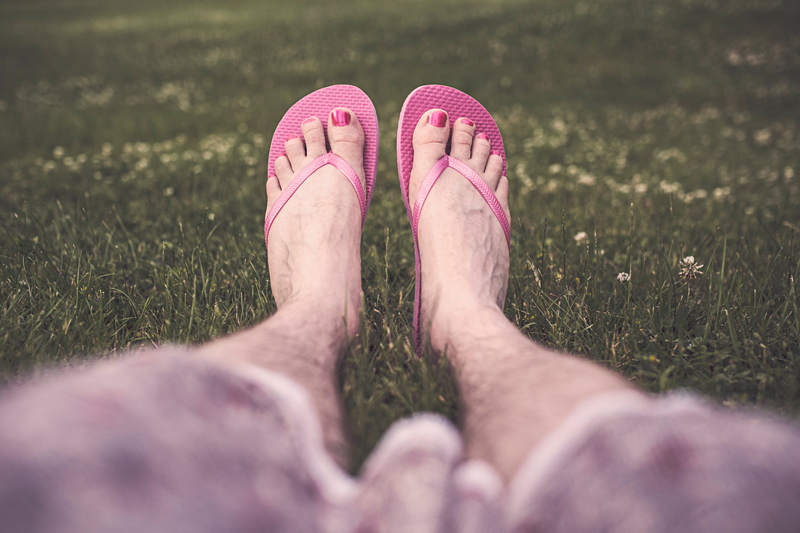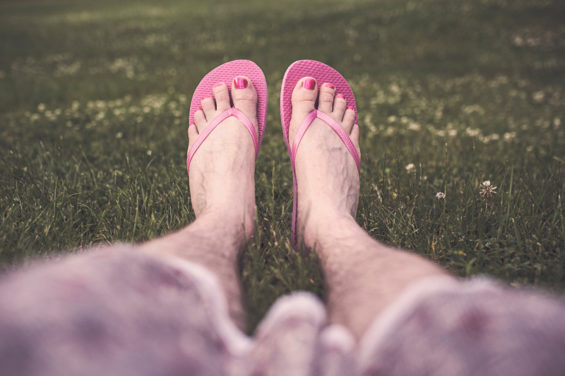Let’s Talk about Casual Sexism


Although I wish it were under different circumstances, I’m thrilled that sexual harassment and violence against women is finally—finally—part of mainstream national discourse. Thanks to the hundreds of accusations collectively leveled against professional leches like Harvey Weinstein, Mark Halperin, Bill Cosby, Roger Ailes, James Toback, Bill O’Reilly, former President George H. W. Bush, and our current Pussy Grabber in Chief, the widespread nature of the problem is being acknowledged, and has become a daily topic of conversation in classrooms, in workplaces, and even at dinner tables.
It’s a conversation has been a long time in coming, reaching its slippery, spidery fingers back not only through my own lifetime, but into the lives of the pioneers who marched during the first wave of feminism. Most women I know—present company included—would need an abacus and an extra set of fingers and toes to count the number of times they’ve been subjected to #MeToo-worthy pressure and insults, from catcalls on the street to thinly veiled threats and “accidental” breast-bumping in office hallways. And although, according to RAINN, sexual violence has fallen by more than half since 1993, as of 1998, 17.7 million American women reported being victims of attempted or complete rape. Meanwhile, a newly released NBC/Wall Street Journal poll shows that 48% of American women in the workforce have been harassed.
These are sobering statistics.
If they’ve finally make their way into public consciousness as a result of the airing of Hollywood’s prodigious batch of dirty laundry, that’s something to feel hopeful about. But I don’t think the we’ll truly see social change until we apply the same laser gaze toward casual sexism—the kind that doesn’t result in job loss, public humiliation, or jail time, but is, in many ways, just as insidious as its more flagrant counterparts.
For decades, we’ve perpetuated a Mad Men–like mentality about the roles of men and women in both professional and personal spheres. For example, my sister, an accomplished physician, has repeatedly been called “Nurse” by patients—usually male—in the hospital. Despite having an advanced degree and being more money-savvy than most people, when it came time for the final negotiation with a car dealer, she elected to bring her husband along, believing he was likely to get a better deal, even if he made the same arguments she’d already made.
She was right.
I’ve experienced casual sexism multiple times in my own life, but believed—naively, I suppose—that after 40, my older-and-wiser (and, at least according to prevailing cultural norms, no-longer-a-sex-object self) wouldn’t be subjected to slap-in-the-face inequality. Fast forward to last Tuesday, when an electrician came out to fix a faulty attic fan in my home—which I’ve owned for 18 years. As he was on his way out, I stopped him to ask some questions. He answered with comments like, “He can change the settings if he wants,” “He should look at the humidistat if he has concerns,” and “It’s up to him if that’s how he wants to do it.” Puzzled, I asked, “Who’s he?”
“The homeowner,” he stated.
When I replied, “That would be me,” he shrugged, picked up his tools, and left.
I decided to take my concern to Facebook. I asked my women friends to relate similar experiences of casual sexism. Here’s a sampling of their responses:
“ALWAYS in the work environment. Men and women alike always thought there must be a man involved in one manner or another—whether cooking or the financial backer.”
“I remember my dad had to sign for credit for my stepmother’s biz in the late 1960s even though she made more but, he was a GUY.”
“Call me old fashioned but I prefer when a man asks me if I need help with something rather then assuming I need help. Like dude, I got this thanks.”
“This stuff happens all the time. I went to a car dealership with husband. I was the buyer but they didn’t look at me…”
“We had cable installed last year and I asked the nice young man if I could access the router admin to change the password and he said, ‘Your husband could do that if he’s technical.'”
“I had been a member of the local [youth sports] board for 8 years when the founder and director of the program retired and asked me to succeed him. . . . I don’t think I said more than 2 words the first year. I just watched and observed. The second year I became more vocal but was more ready to receive the questions and I had enough knowledge of the organization to bide my interjections where I felt confident I would know what I was talking about or ask a question that didn’t flag me as not knowing the sport. Some of these guys played against each other 4 decades ago, many did not think I should be there. They questioned what was wrong with our organization that there wasn’t a man willing to take on the position. I held. Even within our local program, some fathers fought against my authority. I actually re-wrote the steering committee bylaws and established an executive trio that in the eyes of the public deflected attention on decisions I would make but with approval from the other 2 (male) executives, appeared to be solid. I can’t recall any action we passed as a trio that I was overruled on. It was in my eyes, for the best of the program to keep my leadership and management hidden to a great degree.”
I even had a couple of male respondents, like this one:
“My wife is out of town and women assume I survive on Doritos and Coca Cola. And that the house is turning into a pig sty. Etc. You know the cliches.”
There’s plenty more where that came from.
It’s a huge positive step that we’re finally talking about the pervasiveness of sexual harassment and abuse. But if we truly want to create change, let’s make sure that casually sexist attitudes about gender roles get the public-roast treatment, as well.